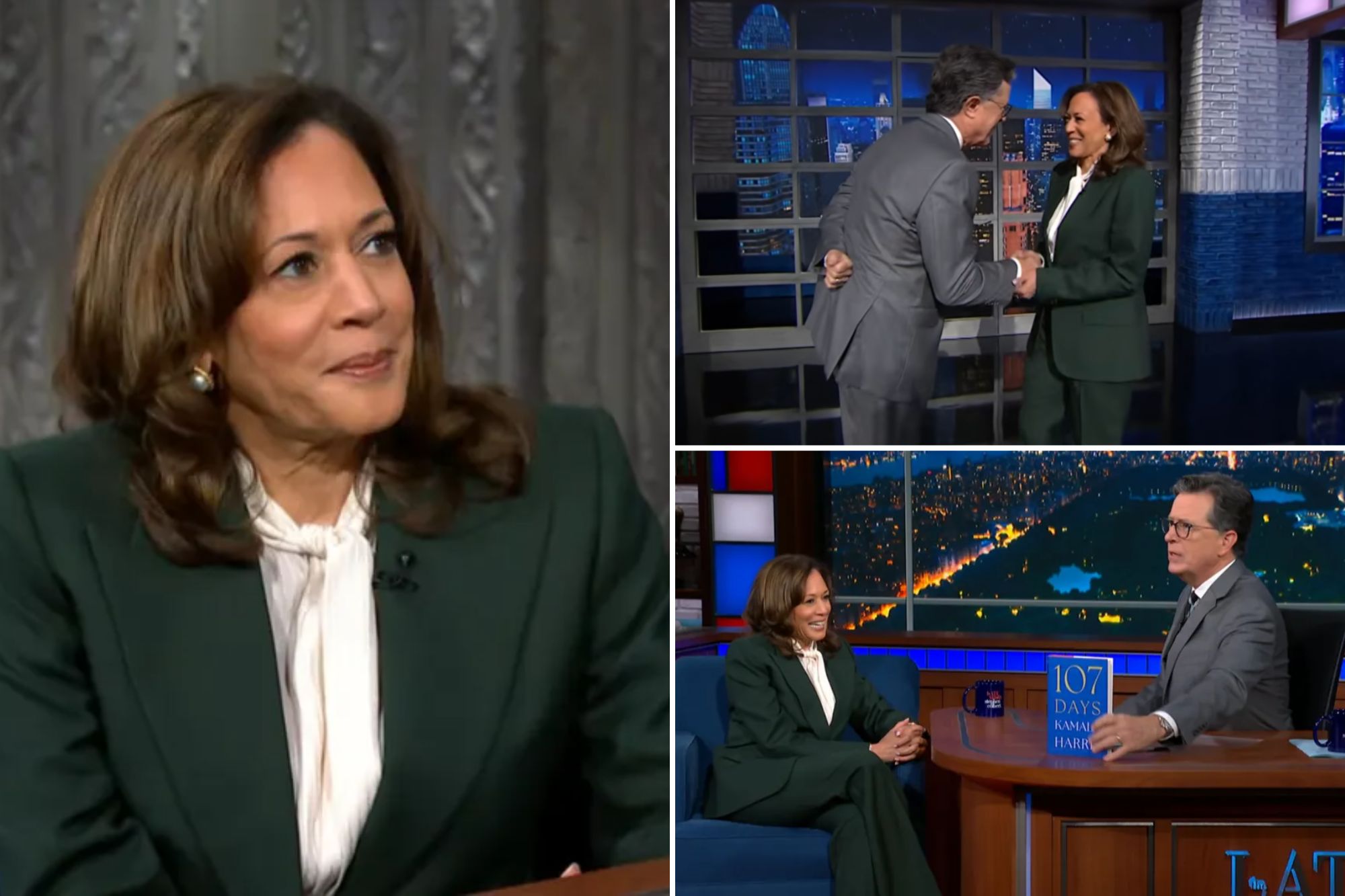In a revealing Stephen Colbert interview on “The Late Show,” former Vice President Kamala Harris delivered a candid assessment of the political system, declaring it “broken” and signaling a potential departure from traditional presidential ambition. Her comments, made in her first post-election appearance, ignited speculation regarding her intentions for the 2028 election and her broader role in US politics moving forward.
Harris notably expressed a disinterest in the long-held belief among some politicians that they are destined for the presidency, stating unequivocally, “that wasn’t me.” This surprising admission from a figure who recently concluded a significant presidential campaign offers a unique perspective on the motivations and pressures inherent in high-stakes political races, challenging conventional narratives of ambition.
Instead of eyeing another White House bid, Harris articulated a desire to travel the country, engage with citizens, and foster genuine connections outside of the transactional nature of campaigning. She emphasized a yearning for non-electoral interactions, focusing on listening and conversing with individuals across the nation, suggesting a shift in her engagement with the public.
Colbert, known for his support of the Biden-Harris ticket, appeared taken aback by the former Vice President’s reluctance to immediately jump back into the political fray. His reaction underscored the unexpected nature of her remarks, given the typical trajectory of prominent political figures after a major election cycle.
Harris’s appearance coincided with the forthcoming release of her new book, which she described as an intimate “behind-the-scene sharing of what it means to run for president.” This literary endeavor promises to offer further insights into the complexities and personal tolls of a modern presidential campaign, providing a narrative beyond the public spotlight.
She characterized her recent campaign against former President Donald Trump as “very intense” but steadfastly maintained that she never harbored aspirations to be Commander-in-Chief. This consistent messaging reinforces her stated detachment from the ultimate goal of many politicians, painting a picture of a leader re-evaluating her path within the fractured political system.
During the conversation, Colbert pressed Harris on the discussions that ensued following President Biden’s June 2024 debate performance, particularly whether she was urged to prepare to potentially replace the incumbent. Harris acknowledged that “there were some who did” but firmly asserted that the ultimate decision rested with President Biden, showcasing her respect for the existing political hierarchy.
When prompted to identify the current leader of the Democratic Party, Harris skillfully sidestepped the question, arguing that “there are lots of leaders” within the party. This response highlighted a potential desire to avoid singling out individuals and instead promote a more collective vision for the party’s future leadership amidst ongoing transitions in US politics.
Her candid reflections on the intensity of her past presidential run and her consistent declaration of never desiring the top office provide a stark contrast to typical political narratives. The Stephen Colbert interview serves as a crucial moment for understanding Kamala Harris’s evolving perspective on the political system, her personal presidential ambition, and her future in US politics as discussions for the 2028 election begin to surface.






Leave a Reply